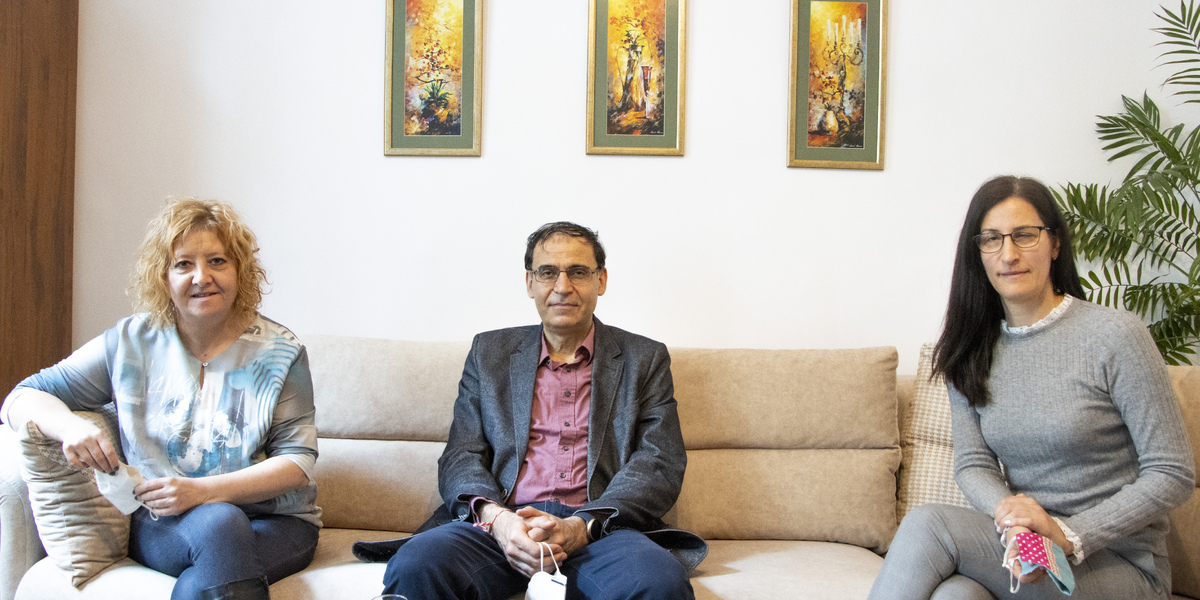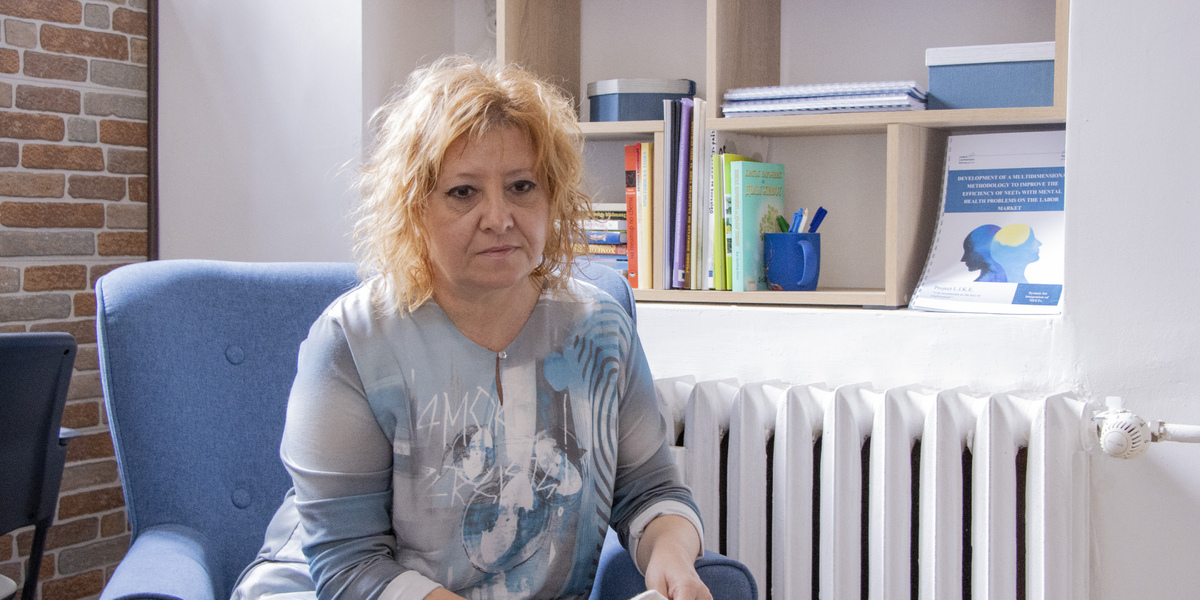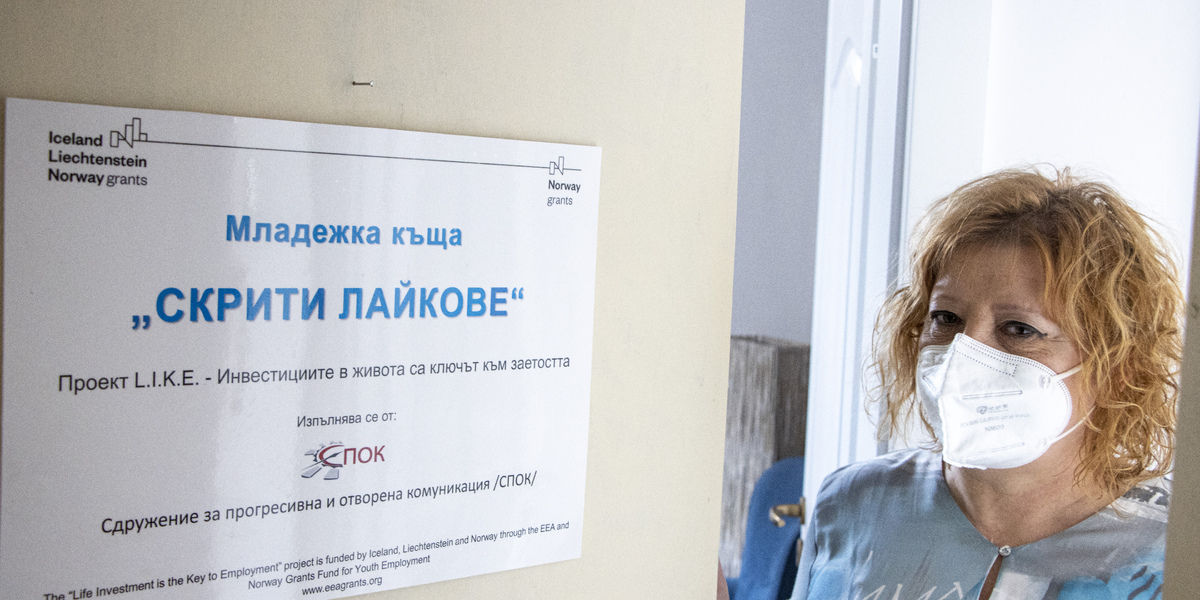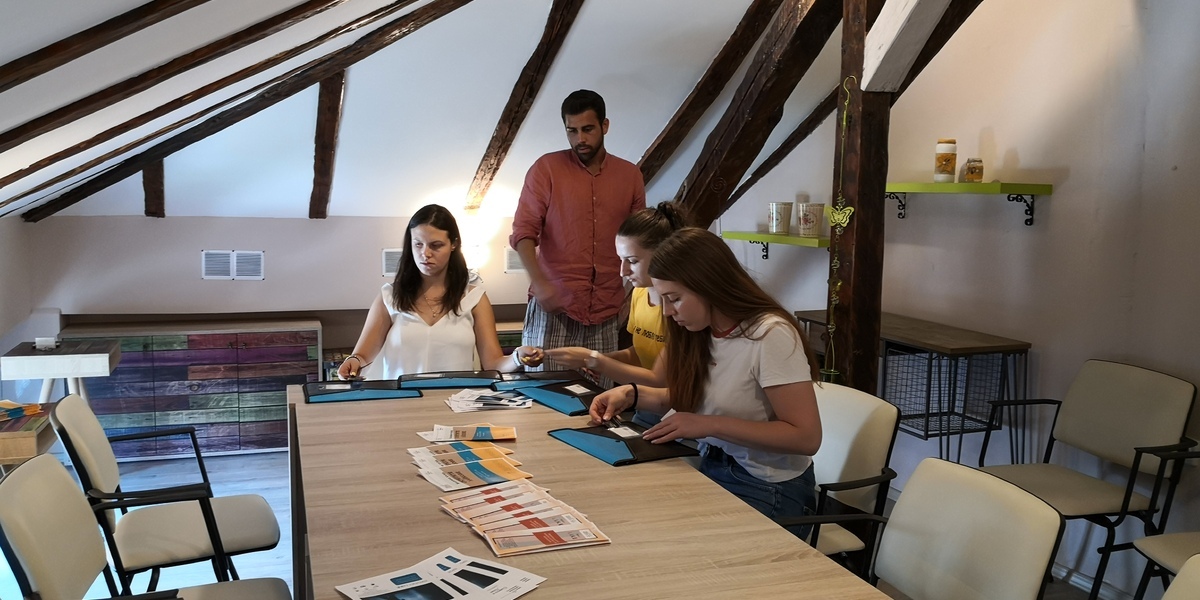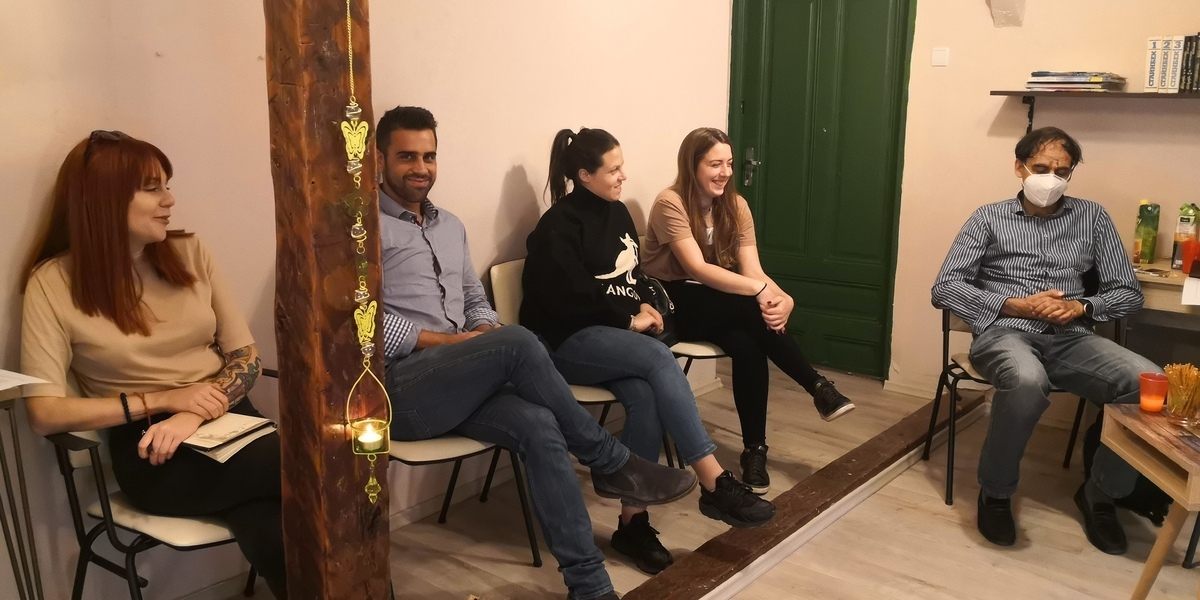13-05-2021 07:38
According to data from the World Bank, almost 15% of the young people in Bulgaria (age 15-29) are not studying, working or have any desire to do so. They fall in the group labeled with the popular acronym NEET – Not in Education, Employment or Training. At the same time, the issue is of global scale and one of the priorities for the Youth Employment Fund of the European Economic Area where Norway, Iceland and Liechtenstein are providing 61 million Euro. The aim is to support as many as possible from the 14 million young Europeans who seem to have lost the way forward. We are visitng Project L.I.K.E. – Life investment is the Key to Employment. Our host is the leading organization in the project - Association “Sustainability of Progressive and Open Communication” – SPOC. They are partnering with entities working in the same field of activities in Hungary, Latvia, Italy, Iceland and Norway. “We are always aiming to involve all interested parties. For me this is the right way forward. If we do not join efforts, we won’t have sustainability,” shares Ms. Albena Drobachka, Chairman of the Association and Project Leader.
For this reason, the project activities in Bulgaria are implemented by a diverse team of specialists in psychology, sociology, ethnic issues and many more. Through studies, surveys, interviews and exchange of experience with the partners, successful practices are selected to better target the specific group of young people. You might already be visualizing long hours on the couch of the psychologist, but reality is much different. What the project provides are art activities, sports, animal care, gardening, meeting employees, etc. Even better – the project and the young people have a dedicated house – the so called Hidden Likes House. It is located at the heart of Sofia, an old and beautiful house that dates back to 1930. Since last autumn, more than 80 people have become part of the project activities. In 2021 similar houses will be opened in Latvia and Hungary.
The biggest challenge for the project is reaching young people and taking them on board. General opinion in the society is to be blamed here. “We face prejudice such as if people see you visiting a center like ours, you will be labeled as crazy, shares Albena. To tackle this challenge, open days are held regularly at the center and family and friends support remain crucial for the process.
Dr. Yuri Katsarov is one of the clinical psychologists involved in the project. He is taking us through the process when someone visits the center for the first time. “We start with the so called psycho-diagnostic interview, or evaluation of each individual case and issues. We collect data and personal history for each person. Then we move to the activities which are the key for the change in each individual.” The ultimate goal is starting a new job, training or education. Mentors support the process, while the whole family is involved as well.
Another important task for the project is focusing on vulnerable groups including Roma. The aim is at least 10% of the involved young people to come from such groups which poses a challenge. Nevertheless, SPOC has 10 years of experience and a number of established contacts to help. Good communication is essential here – mediators, parents and volunteers help.
It’s easy to feel relaxed and secure in a place like the Hidden Likes House. The team has carefully chosen the furniture and colours in order to create a peaceful environment complemented by a positive team of experts. The project will conclude in 2023 but the ambition is to carry on with the activities as a proven and successful approach for solving the issue. The help of experienced professionals from the Donor Countries and the establishment of good partnerships gives a solid base on which the project team will build on in the future.




